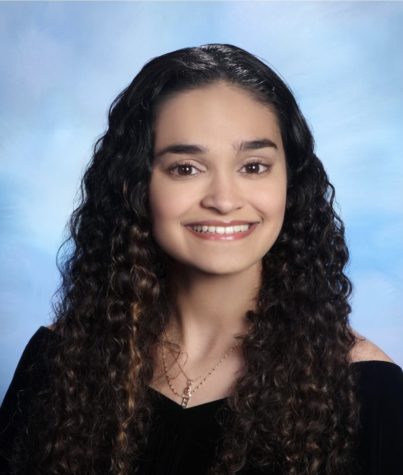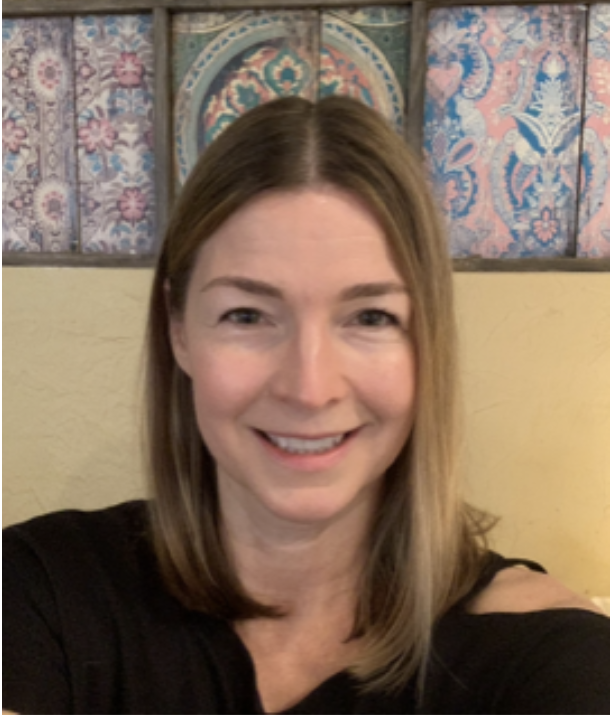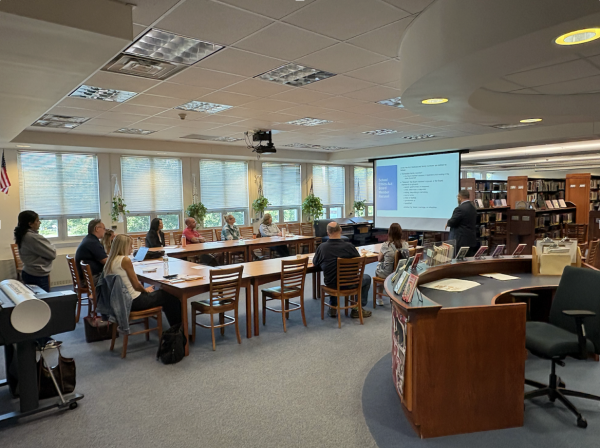Michele Olszewski-Garcia announces retirement
She shared more about her retirement in an interview with the Trailblazer.
Michele Olszewski-Garcia is a Spanish teacher that has been teaching at Pascack Hills since 2001. She has also advised clubs such as Interact, Spanish club, and the Spanish Honor Society.
Before coming to Hills, Garcia taught in Mexico and at a middle school. She shared more about her retirement in an interview with the Trailblazer.
Briana Keenan: I’ve heard a little bit, but I want to hear from you: why did you decide to retire?
Michele Olszewski-Garcia: I decided to retire because I will have been doing this for thirty years. So I’ve been doing this for a long time; I’ve enjoyed the thirty years, but I just think that now’s the right time…I feel good, I wanna reconnect, spend more time with family and friends, and you kinda have to do things when you can. You have to take advantage of the present time, so I figured this was a good time. I have two kids; one of them is graduating this year, and one of them will graduate next year. So, what’s happening is this is my last year teaching, but then I have to come back for September and October. So, I’m not gonna be teaching; I’ll just be here helping out with administration and any classes they need me to cover, helping out anything where they need someone who’s bilingual with meetings…even helping kids with college applications like the Common App…maybe study skills, wherever they need me for those two months…I’m leaving November 1, so they will be hiring a new Spanish teacher to come in full-time in September. So, my daughter’s graduating this year, and then I initially was gonna work the whole year, but then I can’t have me retiring in June, both my kids leaving in August. I figured, let me retire now in November and then at least my son’s home. And, they both will be there in the summer. This is what parents think about…I still enjoy it, and I don’t wanna wait until I’m miserable…I’m still enjoying it with my students. I’m still having fun, I don’t know if they’re still having fun, but I’m still having fun with them, I’m still laughing with them, and that’s how I wanna leave: while still enjoying what I love to do.
BK: Overall, what would you say is your favorite part of teaching?
MG: I would say interacting with the students. I think that when you have a special class and you have your own jokes and the things you giggle about, that’s the fun thing that can’t really be recreated. Every year it’s different because every class has their own personalities…those little things, those connections you make within the “family” that you have. I really will miss that because I feel like from the get-go that’s what I’ve liked about teaching…the feeling of a big family, and you’re all kinda in it together; you’re all working together for a goal, to get to that next step in Spanish. And also, just to be better people, better prepared…not just Spanish. I really feel like that’s true because when I look back to high school, there’s very few classes I could remember, but I do remember the classes where I feel like, we learned, but we also felt good being there…I’ve been blessed this year with really great classes and that was another thing; it’s time. My classes are perfect, and I wanna leave on a high note. I still enjoy what I’m doing.
BK: Aside from being a Spanish teacher and the Interact advisor, did you do any other advising?
MO: I taught for nine years at a middle school [right] before I came here. I taught since I got out of college, so when I first got out of college, I taught English as a second language in Mexico. I worked at a very elite private school…and I kept in touch with so many of those students. Then, I went to [The University of North Carolina at Chapel Hill], so I was a teaching assistant there getting my doctorate, and I only stayed there a year because I enjoyed the teaching aspect more than the research aspect. Unfortunately, with a lot of jobs at the college-level it’s a lot about researching and publishing, and I really enjoyed teaching. [The students] were just so much fun and I got really good reviews. One review said, “you should do this as a profession,” and I thought, I don’t wanna research, so now I’m going to pursue it as a profession. I started in a middle school, where I did soccer. I was non-tenure [and they needed a coach]. We did a Spanish choir; we would practice in our classes and then present for the rest of the school, which was a lot of fun. Of course, Spanish Club, Honors Spanish Society at a time. It’s really big here at Hills, the Spanish Honor Society and Spanish Club. I didn’t want to go back into anything sporty; it wasn’t for me. And then when my colleague retired, she was my collaborative teacher in Spanish I, she was like, “Michele, please consider doing Interact because it’s so great and so much fun” and I go, “you know what, I wanna do something, and I wanna do something that’s not Spanish. Interact has been so fulfilling because I’m getting to know other people…other students in the school that aren’t just Spanish students and it’s shown me so many students…their capacity for giving and caring. I’m seeing such another side of the students, and I know that’s always been there, but how involved [the students] are outside of school and so many things that [they] participate in. I’m getting to know the students at another level, which has been great. So many events that we’ve done…I’m just so proud of. I can say “wow, they were all in on that.” When I started, it really was just the food drive and the shelter drive and the lollipops. And then we kinda grew, and pre-Covid we did those great runs…we’ve really expanded with more outreach with the food pantry and just doing different things. The book drive was new, the dental drive was new, the donut drive was new…we help out the Rotary when we can.
BK: I remember that for your undergraduate degree, you said that you went to Clemson. Can you speak more about that?
MO: I went to Clemson and I double majored there, so I did liberal arts Spanish, and then I was just gonna graduate with that but then my advisor was like my junior year…you know, you’re gonna graduate early, or you’re gonna get a double major in Education and Spanish. And, I remember saying to him, “ew, I don’t wanna work with kids” and he said to me “you never know; it will be handy in case you want it.” So then I did all of the other education courses in addition to the other stuff and then I did my student teaching, which I liked, it was at a liberty high school in South Carolina…and I was like, “this is okay,” but it’s not until I got to Chapel Hill when I was like, I think this is where I wanna do. That’s where it all connected.

Briana Keenan is a senior at Hills. She joined the Trailblazer her freshman year as a staff writer and edited for the In-Depth and School News sections her sophomore and junior years, respectively. This year, Keenan is looking forward to being the publication's Editor-in-Chief and continuing to write, edit, and manage stories for the Hills community.
Fun fact: Over the summer, Keenan went to the School of the New York Times for two weeks.












































